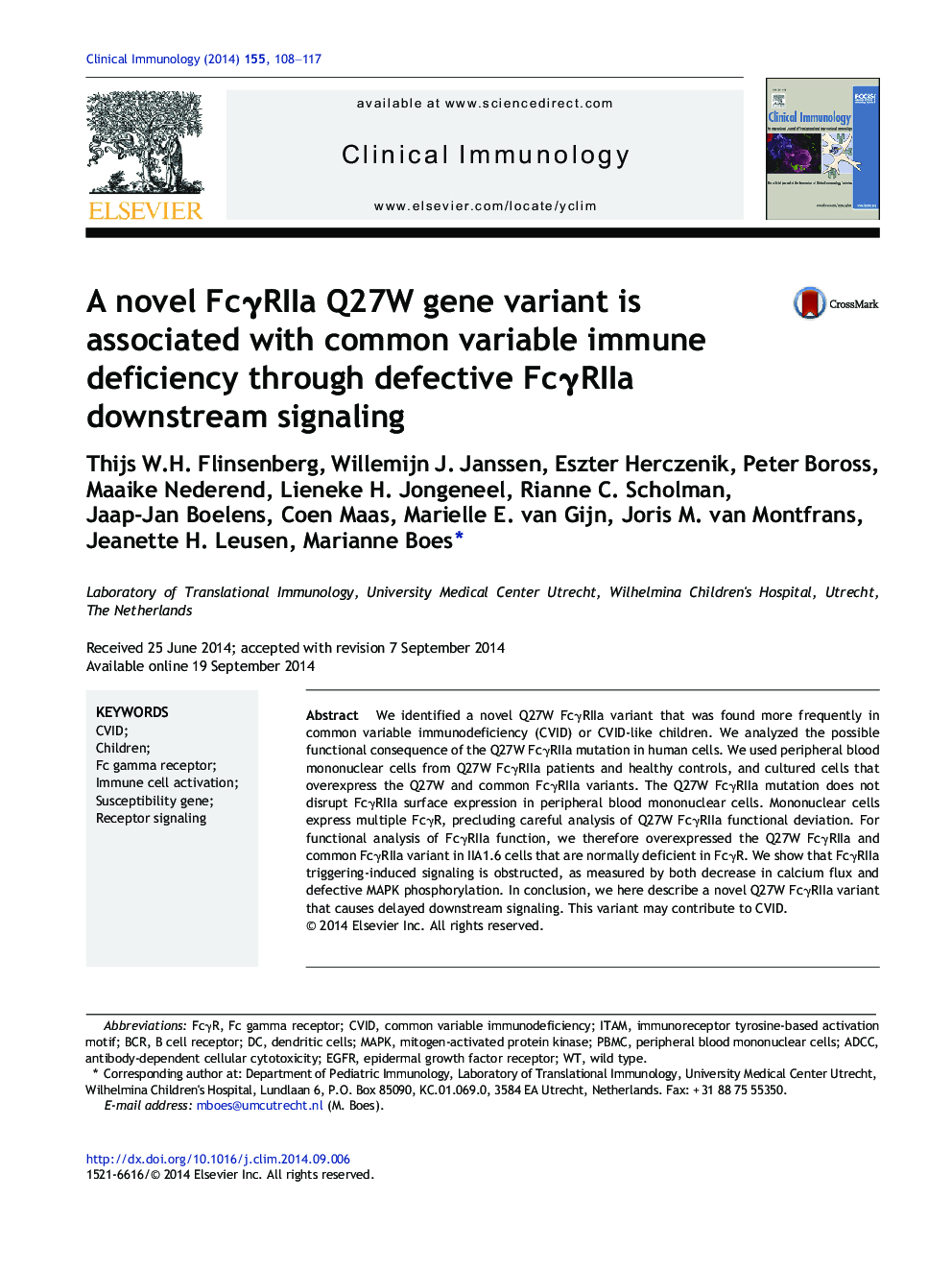| کد مقاله | کد نشریه | سال انتشار | مقاله انگلیسی | نسخه تمام متن |
|---|---|---|---|---|
| 6087363 | 1207358 | 2014 | 10 صفحه PDF | دانلود رایگان |

- A FcγRIIa Q27W gene variant was found with increased incidence in CVID children.
- The Q27W gene variant does not lead to altered receptor expression.
- This variant results in altered down-stream signaling and has implications for cell function.
We identified a novel Q27W FcγRIIa variant that was found more frequently in common variable immunodeficiency (CVID) or CVID-like children. We analyzed the possible functional consequence of the Q27W FcγRIIa mutation in human cells. We used peripheral blood mononuclear cells from Q27W FcγRIIa patients and healthy controls, and cultured cells that overexpress the Q27W and common FcγRIIa variants. The Q27W FcγRIIa mutation does not disrupt FcγRIIa surface expression in peripheral blood mononuclear cells. Mononuclear cells express multiple FcγR, precluding careful analysis of Q27W FcγRIIa functional deviation. For functional analysis of FcγRIIa function, we therefore overexpressed the Q27W FcγRIIa and common FcγRIIa variant in IIA1.6 cells that are normally deficient in FcγR. We show that FcγRIIa triggering-induced signaling is obstructed, as measured by both decrease in calcium flux and defective MAPK phosphorylation. In conclusion, we here describe a novel Q27W FcγRIIa variant that causes delayed downstream signaling. This variant may contribute to CVID.
Journal: Clinical Immunology - Volume 155, Issue 1, November 2014, Pages 108-117